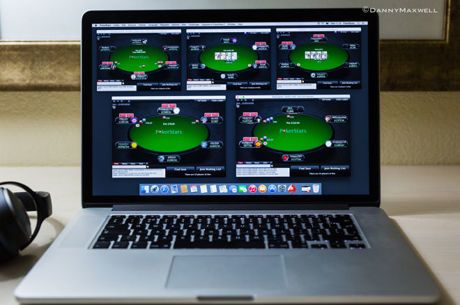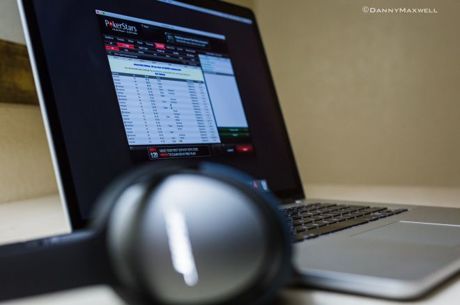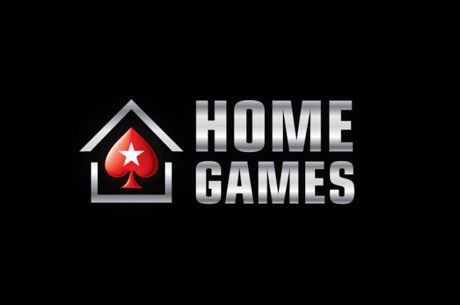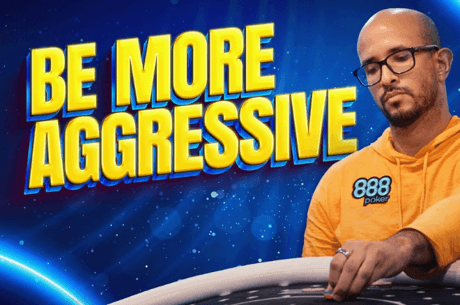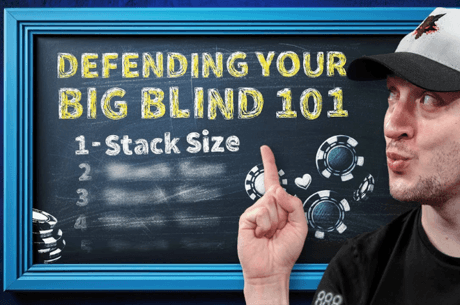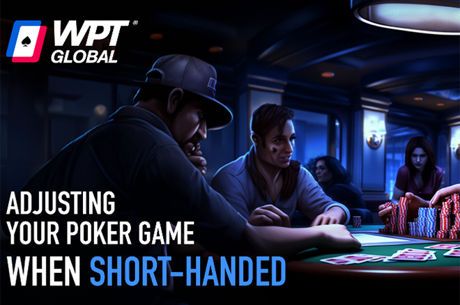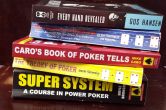Q&A with 'Poker with Presence' Author Jason Su
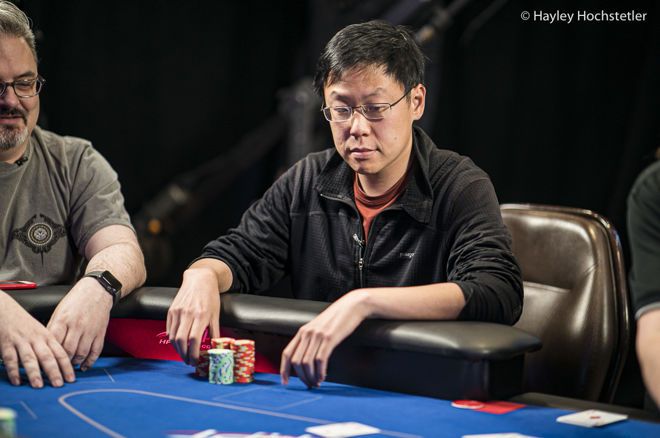
In poker, you need both art and science to excel. An intuitive “feel player” might dominate for a while, only to lose to others who expose her technical deficiencies; on the other hand, a solver-obsessed theorist who doesn’t trust or hone his intuition lowers the ceiling of his potential.
To be the best that we can be, Jason Su writes in Poker with Presence: Unlocking the Final 15%, we need a method of linking the two. “Presence,” he says, “bridges the gap between what you study and how you perform. It aligns your intuition with your ability. Presence unlocks your potential to make the perfect play at just the right moment. While a firm grasp of poker knowledge can take you to 85% of your maximum poker potential, you need to be fully present to unlock the final 15%.”
Su, a veteran pro who lives in Boulder, Colorado, has experience with a wide range of stakes and variants: live and online, cash and MTTs, and limit, pot limit, and no-limit hold ‘em. He’s recently tackled the challenge of climbing the mixed games ladder; you can follow his progress in his latest Two Plus Two Poker Goals & Challenges thread. In this email interview, I asked Su about writing, managing emotion, tennis, Tommy Angelo, and the importance of cultivating mindfulness in both poker and life.
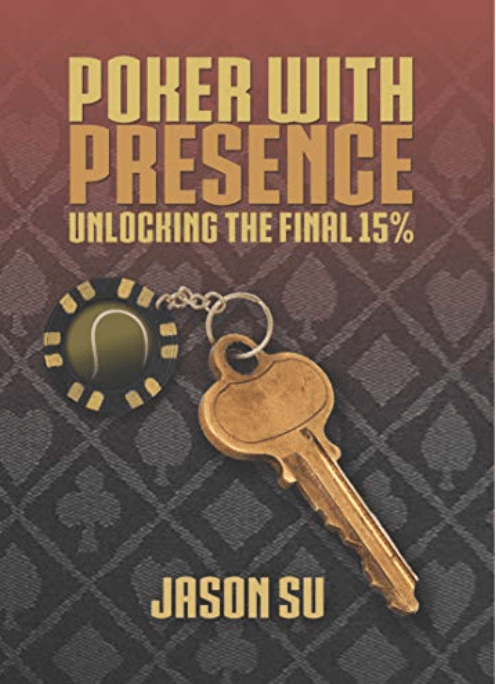
Brush Up on Texas Hold'em Rules
Ben Saxton: What can you tell us about your new book?
Jason Su: For my first eight or nine years of playing poker, I had maybe ten sessions where I felt like I was completely “in the zone,” where I played better than I thought I was capable of, without seeming to even try. The idea of being able to reach this state consciously became an interest of mine, and Poker with Presence is my attempt to demystify this subject using concrete markers that we can lean on to get into that state. I’m happy to say that, by using these tools, I feel like I play at or near my best poker almost every time I sit down.
You stress the importance of honestly assessing and responding to emotion. Why do you think it’s best to embrace emotion rather than detach from it?
As humans, we aren’t really capable of detaching from our emotions. When we try to pack away a feeling to deal with later, the emotion still gets expressed through our behavior, often resulting in poor play. When we embrace our emotions, even for just a second, we free up that energy and clear our emotional dashboard. From there, nothing is siphoning away our energy, and we can focus completely on playing our best poker.
What are your thoughts on the importance of game selection, table selection, seat selection, “quitting,” and other metagame considerations?
I probably care about these individual aspects of poker less than most. People put a lot of emphasis on doing these things well so that they can gain an edge in their games, but I approach it from an opposite perspective. If I’m not present, my decisions are too often based on fear and projection. But once I generate some presence and flow inside myself, I can trust that I will make good decisions when it comes to quitting the game or adjusting my strategy versus another player based on what has happened in this session. Rather than focusing on ten different things, I focus on the one big thing that impacts the way I execute all the smaller things that lead to success.
A chapter entitled “The Other 85%” discusses the value of studying, talking through hands with other players, and seeking out those who have already walked the path that you wish to travel. Do you have any concrete advice for how players might actively study and improve?
I think the majority of players invest too little time into figuring out what their optimal learning styles are, and too little money into seeking out mentors who can help them get from A to B much faster than they will get there on their own.
Not everyone is going to learn effectively from watching a training video or reading a book. There are so many more ways to learn than that, and people who struggle with the traditional educational formats might find that when they tap into the learning method that best suits them, they’ll internalize the game in ways that allow them to really flourish.
By far the biggest thing that altered my career earnings was hiring my first coach in 2008, and by far the biggest thing that kept me from earning exponentially more in my life was not hiring my first coach three years earlier. People who want to study and grow in all other aspects of life find and hire mentors who have already done what they are looking to do. Poker players seem to struggle with the idea of seeking out help. When you find someone whom you trust to give good information, every dollar that you invest into your growth with them is going to return exponentially more. Even though I’ve reached a pretty high skill level, I still invest money into my poker education on a regular basis to ensure that I’m always getting better.
Here's some more strategy for winning small stakes tournaments
You mention an appreciation for Tommy Angelo—in particular his 2007 classic Elements of Poker. In what ways are you indebted to Angelo? In what ways does your book depart from his?
Tommy and I have become good friends over the past year, and he helped me work through the writing process in ways that only someone who has written and published books before could. He encouraged me to tap into the most important messages I wanted to convey while helping me avoid a lot of the traps that first time authors fall into. Without his help there’s no way the book would have come out as polished as it did.
Elements of Poker was ground-breaking in how it framed the experience of playing poker, and how to live the life of a poker player in a way that reduces tilt as much as possible. Thanks to Tommy’s work, I didn’t have to focus on tilt very much in Poker with Presence. Instead of talking about not playing worse, I got to focus on my favorite big question: What can we do to consistently stretch beyond what we think is possible? That’s what gets me excited, and I'm happy I got to be the one to explore that.
I’ve noticed that more than a few successful poker players—Patrik Antonius, James Obst, Zach Jiganti, Brandon Adams, Gus Hanson—are also tennis players. What has your experience with tennis taught you about poker? What has your experience in poker taught you about tennis?
Tennis is unique in that you’re looking to adjust to your opponent while at the same time experiencing all of your thoughts and emotions with nobody around you. In both games you need to learn how to fully be honest with yourself at all times in order to perform up to your capabilities, because there’s nobody else there to do that job.
Looking back, the quality that gave me success in tennis was my desire to improve each day and enjoy the process as much as I enjoyed the wins. Embodying that mindset in poker has been a huge factor in my success as a player, writer, and coach.
“Poker,” you write, “has been my second act in which I get to battle hard, savor the high that comes with crushing souls, and feel the pain of getting destroyed.” What are the benefits and drawbacks to having a ruthless competitive drive and a high tolerance for pain?
The biggest benefit to loving the competitive aspect of the game is that I feel like I’m growing as a person and a player each time I sit down to play or study. Because of this, I enjoy the game more each day and I’m always excited to play. While there have been tough moments in high-stakes games over the years, I don’t regret any of it because it all made me stronger and eventually able to beat any game I played in.
Poker with Presence focuses (understandably) on at-the-table strategies for increasing awareness and paying attention. For someone wanting to develop mindfulness in other areas of life, what resources would you recommend?
I highly recommend reading The Art of Learning by Josh Waitzkin, as well as The Big Leap by Gay Hendricks. I also recommend finding some sort of activity that creates a meditative state inside of you—whether it’s actually from meditating or something else—and putting an emphasis on doing that activity every day. Life is easier to navigate when you’re in a calm and centered place, so you’ll likely find that, by putting yourself in that state on a regular basis, you’ll naturally perform better in every aspect of your life.
Is there anything else you’d like to mention?
A lot of people nowadays want to simplify the poker experience into rote strategies based on solver outputs, but I think the beauty of the game lies in the fact that we’ve all had certain intuitions during our poker lives where we couldn’t necessarily explain why we knew something to be true, but we just knew it was true because our subconscious could sense that there was something different going on in that particular hand. Those are the moments that I’m most interested in creating, and I think that the more attention people give to cultivating deep states of presence, the more they’ll have magical experiences where their intuition blends perfectly with their poker knowledge to make outstanding plays in big moments. That’s what excites me, and I’m happy that I get to help people learn to do this.

